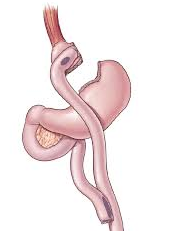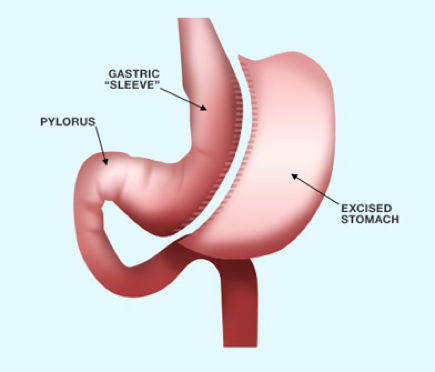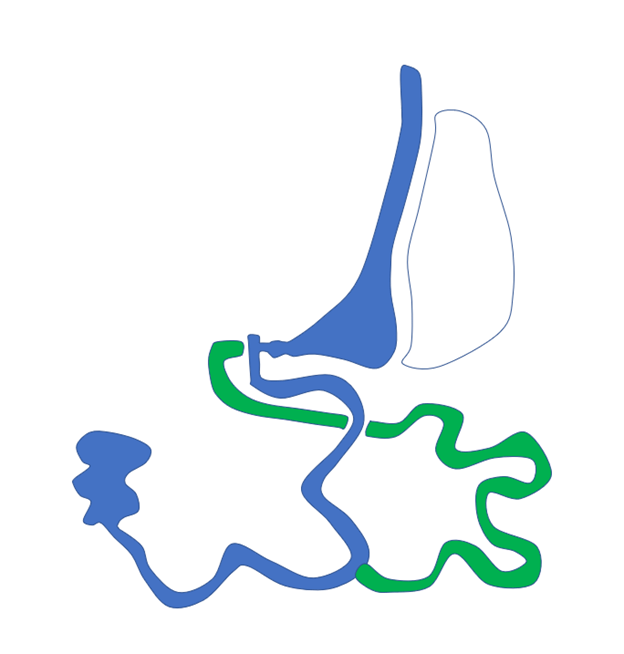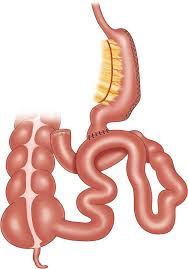- +92-333-6676643
- info@healthgateways.org

Gastric bypass and other types of weight loss surgeries — also called bariatric or metabolic surgery — involve making changes to the digestive system to help lose weight.
Bariatric surgery is done when diet and exercise doesn’t work or when one has serious health problems because of excessive weight. Some weight-loss procedures limit how much one can eat. Others work by reducing the body’s ability to absorb fat and calories. Some procedures do both.
While bariatric surgery can offer many benefits, all forms of weight-loss surgery are major procedures that can pose risks and side effects. Also, one must make permanent healthy changes to your diet and get regular exercise to help ensure the long-term success of bariatric surgery.
Bariatric surgery is done to help you lose extra weight and reduce the risk of possibly life-threatening weight-related health problems, including:
In general, bariatric surgery could be an option if:
Bariatric surgery isn't for everyone who is severely overweight. One may need to meet certain medical guidelines to qualify for weight-loss surgery. Patient will have an extensive screening process to see if they qualify. They must be willing to make permanent changes to lead a healthier lifestyle
If a patient qualify for bariatric surgery, the health care team gives the instructions on how to prepare for this specific type of surgery. The patient may need to have lab tests and exams before surgery. They may have to limits on eating and drinking and which medicines they can take. The patient may be required to start a physical activity program and to stop any tobacco use.
Bariatric surgery is done in the hospital using general anesthesia. This means the patient would be unconscious during the procedure.
The specifics of the surgery depend on the individual situation, the type of weight-loss surgery they have, and the hospital's or doctor's practices. Some weight-loss surgeries are done with traditional large incisions in the abdomen. This is known as open surgery.
At Health Gateway our expert team perform most types of bariatric surgery laparoscopically. A laparoscope is a small, tube-shaped instrument with a camera attached. The laparoscope is inserted through small cuts in the belly. The tiny camera on the tip of the laparoscope allows the surgeon to see and operate inside the abdomen without making the traditional large cuts. Laparoscopic surgery can make recovery faster and shorter.

This procedure is the most common method of gastric bypass. This surgery is typically not reversible. It works by decreasing the amount of food you can eat at one sitting and reducing absorption of fat and calories.

With sleeve gastrectomy, about 80% of the stomach is removed, leaving a long, tube-like pouch. This smaller stomach can't hold as much food. It also produces less of the appetite-regulating hormone ghrelin, which may lessen the desire to eat.
Advantages to this procedure include significant weight loss and no rerouting of the intestines. Sleeve gastrectomy also requires a shorter hospital stay than do most other procedures.

This is a two-part surgery usually performed in one setting. The first step involves performing a sleeve gastrectomy.
During the second step, the surgeon closes off the middle section of the intestine and attaches the last part directly to the first part of the small intestine, called the duodenum. This is the duodenal switch. The separated section of the intestine isn't removed from the body. Instead, it's reattached to the end of the intestine, allowing bile and pancreatic digestive juices to flow into this part of the intestine. This is the biliopancreatic diversion.
This surgery both limits how much you can eat and reduces the absorption of nutrients.

Like BPD/DS, the SADI-S procedure also has two steps, with the first step being a sleeve gastrectomy.
During the second step of the SADI-S procedure, a section of the small intestine known as the duodenum is closed off just below the new stomach sleeve. This opening below the new stomach is then connected to a part of the lower small intestine called the ileum. This is the duodeno-ileal bypass.
The bypass routes food through only about 10 feet of the small intestine, instead of the usual 25. This means there is less time and distance for the body to absorb fat and calories.
After weight-loss surgery, the patient is generally not allowed to eat for 1 to 2 days so that your stomach and digestive system can heal. Then, one has to follow a specific diet for a few weeks. The diet begins with liquids only, then to pureed and very soft foods, and eventually, to regular foods
The patient also have frequent medical checkups to monitor your health in the first several months after weight-loss surgery. They may need laboratory testing, bloodwork and various exams.
MBBS, MS(Surgery) FACS(USA)
Consultant Laparoscopic, Bariatric, Laser & General Surgeon

With a distinguished career and groundbreaking contributions to the field of surgery, Dr. Tanseer stands out as a pioneer in laparoscopic and bariatric surgery. Renowned for his innovative techniques and commitment to patient care, Dr. Tanseer has earned a reputation as a leading expert in minimally invasive procedures
Dr. Tanseer’s expertise in laparoscopic surgery, also known as minimally invasive surgery, has revolutionized the way complex procedures are performed. His innovative approach
As a trailblazer in this field, Dr. Tanseer has developed and refined techniques that set new standards in patient care and surgical precision.
His pioneering work in bariatric surgery, specifically, has helped countless individuals achieve significant weight loss and improve their quality of life. Dr. Tanseer’s proficiency in advanced bariatric procedures, such as
has positioned him as a leading figure in managing obesity and related health conditions.
Dr. Tanseer’s skills are further validated by his certification in minimal invasive surgery from Turkey, the UK and the US a testament to his exceptional training and professional achievements. This certification underscores his dedication to maintaining the highest standards in surgical practice and his commitment to ongoing learning and advancement in the field.
In addition to his clinical practice, Dr. Tanseer is actively involved in research and education, sharing his knowledge and techniques with peers around the world. His contributions to medical literature and surgical training have cemented his role as an influential thought leader in minimally invasive surgery.
Dr. Tanseer’s vision for the future of surgery is one where minimally invasive techniques become the standard of care, leading to safer, more effective treatments for patients. His dedication to innovation and excellence continues to drive advancements in the field, ensuring that his patients benefit from the latest and most effective surgical practices.
Gastric bypass and other bariatric surgeries can provide long-term weight loss. The amount of weight one lose depends on the type of surgery and your change in lifestyle habits. It may be possible to lose half, or even more, of your excess weight within two years.
In addition to weight loss, gastric bypass surgery may improve or resolve conditions often related to being overweight, including:
Gastric bypass surgery also can improve one ability to perform routine daily activities, which could help improve the quality of life.
Maximizing Outcomes: The Cost-Effectiveness and Comprehensive Care of Bariatric Services at Health Gateways
At Health Gateways, we understand that undergoing bariatric surgery is a significant decision with profound implications for a patient’s health and well-being. Our commitment is to offer not only top tier surgical options but also a cost-effective and comprehensive care pathway designed to support you through every stage of your journey.
One of the foremost concerns for many considering bariatric surgery is the cost. At Health Gateways, we prioritize making these life-changing services accessible and affordable. Our approach integrates several key factors that enhance cost-effectiveness:
The journey of bariatric surgery extends well beyond the operating room. Health Gateways is dedicated to providing a holistic, end-to-end follow-up system that ensures sustained success and support:
At Health Gateways, we are dedicated to not only offering bariatric procedures but also ensuring that these services are cost-effective and supported by a robust follow-up system. Our goal is to make your journey as smooth and successful as possible, empowering you to achieve lasting health and well-being






